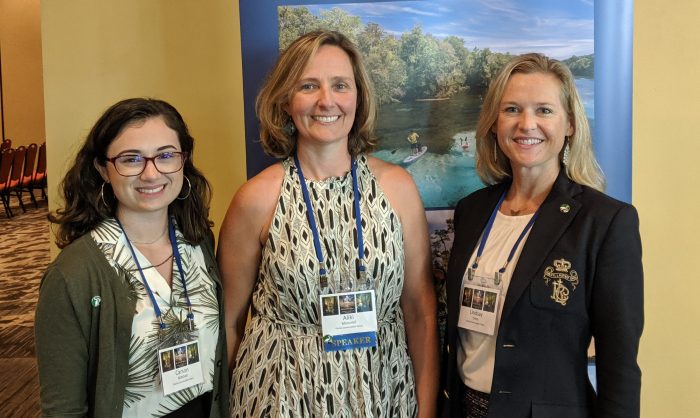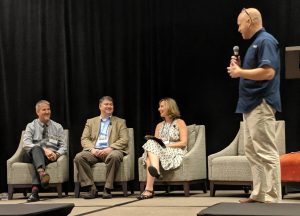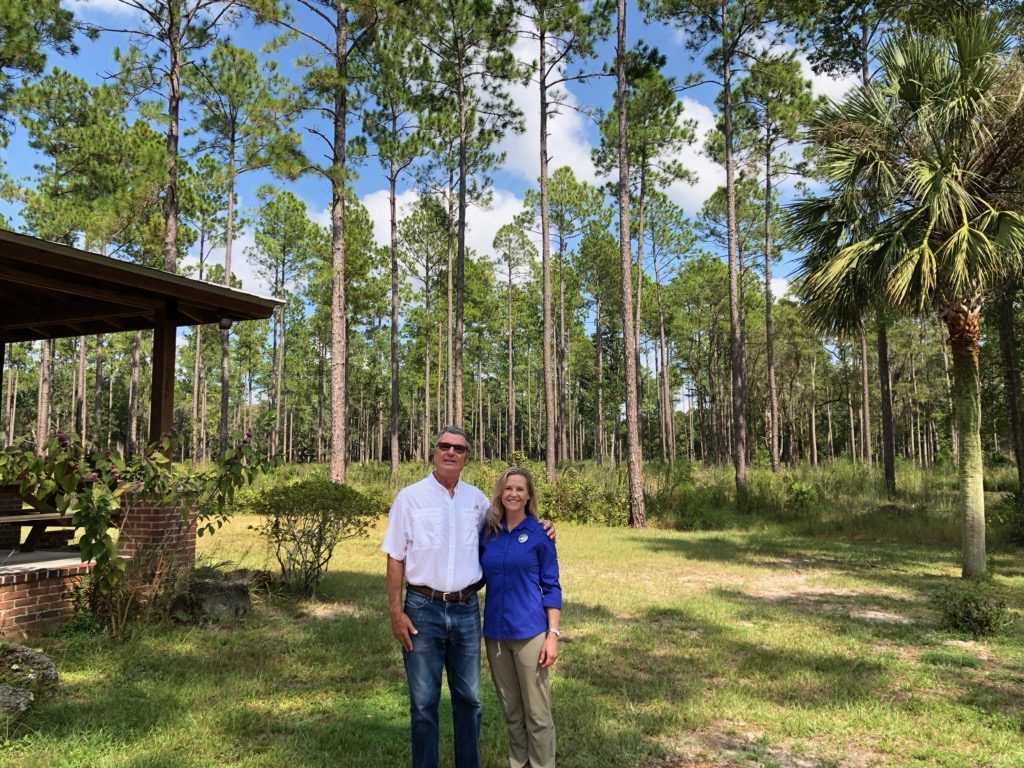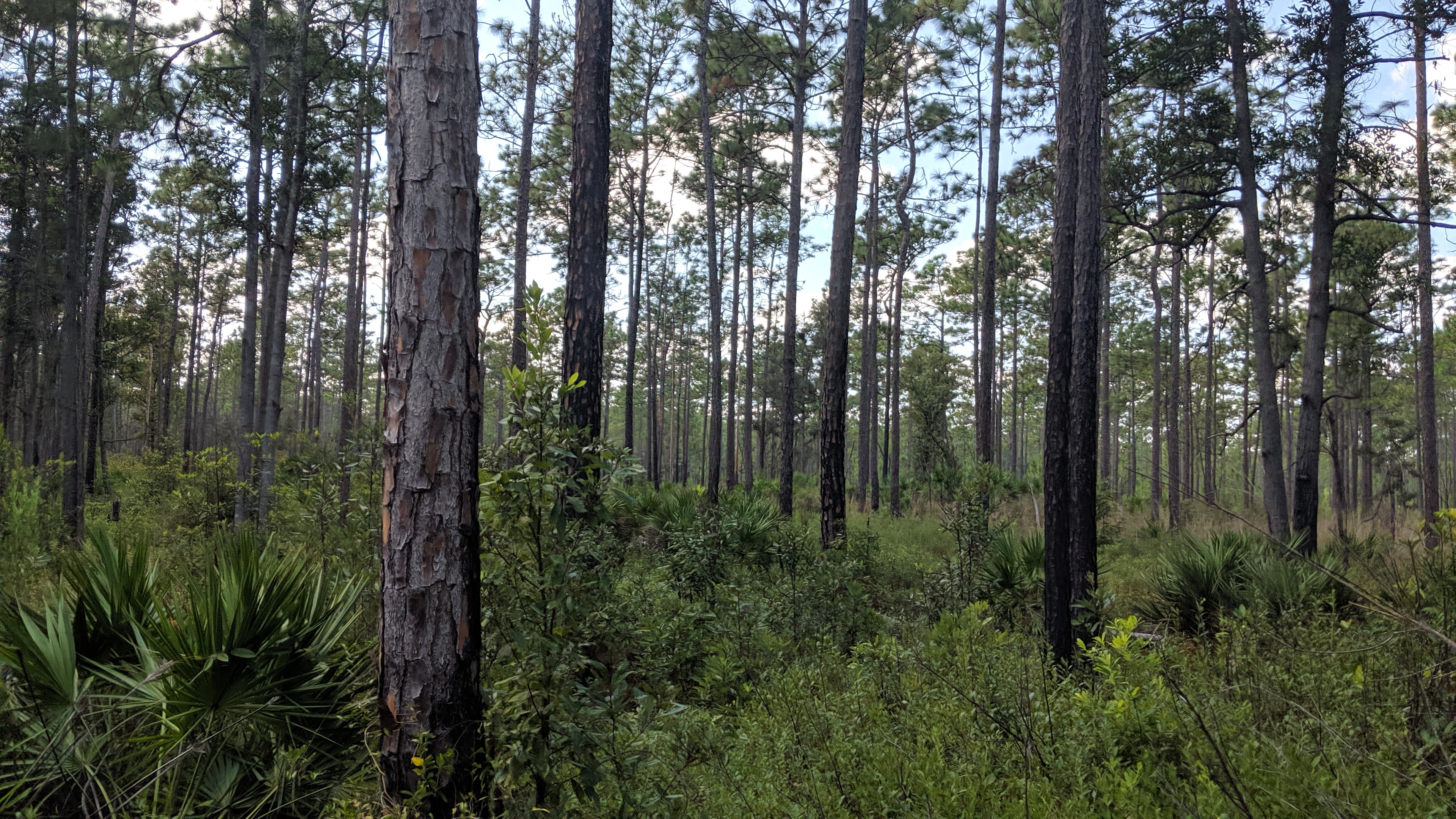Last week, my team and I attended the Public Land Acquisition and Management Partnership conference in St. Augustine. We joined with partners from public, private, and non-profit sectors that work in the conservation field and discussed how to best prioritize acquisition and management in Florida. We attended field trips, presentations, and panel discussions, and partnerships were very much on the mind of attendees and the conference organizer, the Florida Department of Environmental Protection (FDEP). And that makes sense because nothing substantial and long-lasting in the conservation field can be accomplished without strong partnerships.
Partnerships are needed at all levels and have to reach beyond the traditional go-to allies. The state agencies responsible for the bulk of conservation and management in our state – FDEP, Florida Department of Agricultural and Consumer Services’ Florida Forest Service, Florida Fish and Wildlife Conservation Commission, and the Water Management Districts – are adept at working cooperatively. It’s powerful to have them all in the same room sharing ideas and strategies. Among our non-profit partners, it was invaluable to spend quality time with groups like Conservation Foundation of the Gulf Coast, Audubon Florida, 1000 Friends of Florida, and Conservation Florida.
Florida Conservation Voters played an important role. We were there to represent you, the voters. We spoke up for you in our one-on-one conversations and to the entire group through Aliki’s excellent panel discussion on water. She brought up a great point that changed the tone of the conference: acquisition is in Florida’s DNA. And the mistakes we’ve made through our development – such as draining the Everglades – can be ameliorated by making no-regret conservation land buys now.
Partnerships make things happen. When the legislature fails to fund programs like Florida Forever and the Rural and Family Lands Protection Program, private, municipal, and non-profit groups step in. Florida boasts numerous nationally-accredited land trusts and whether they work locally, regionally, statewide, or nationally, they play a critical role in protecting and managing lands. These partnerships include municipal level governments that run effective and complementary conservation programs. For example, proactive measures are being taken by counties like Hillsborough County, whose Board of County Commissioners recently allocated an additional $75 million to its Environmental Lands Acquisition and Protection Program (ELAPP). Elected officials in this rapidly-developing county recognize the value of land acquisition and management and are following the will of the voters who have gladly taxed themselves to ensure that conservation is a priority.
In communities and statewide, we have to make room for business at the conservation table. A keynote presentation by the Florida Chamber of Commerce underscored our important partners in the business community. Last year’s environmental disasters (namely red tide and blue-green algae) hit many coastal communities where it hurts – in their pocketbooks. A renewed focus on conservation will ensure that Florida continues its pattern of record-breaking tourism numbers and award-winning state parks.
Partnerships include productive relationships with the landowners that live on, manage, and advocate for the protection of their lands, even when offered exorbitant sums of money to sell to developers. Legacy, heritage and a deep love of the land has kept countless properties from being developed, but the window of opportunity to shore up these sites is rapidly closing.
The public – Floridians like you and me – are also great partners in land stewardship. Outdoor enthusiasts, whether mountain bikers or duck hunters, rely on public lands and often contribute sweat equity in the form of creating and maintaining trails, or removing invasive weeds from freshwater lakes. We are all “public landowners.” Our taxpayer dollars have protected some of our most iconic places and our overwhelming support for the Water and Land Conservation Amendment in 2014 reinforced our commitment to protecting what makes our state special. So, while we in the community do our work for conservation, we’re really doing it for you, and the next generation of Floridians.




